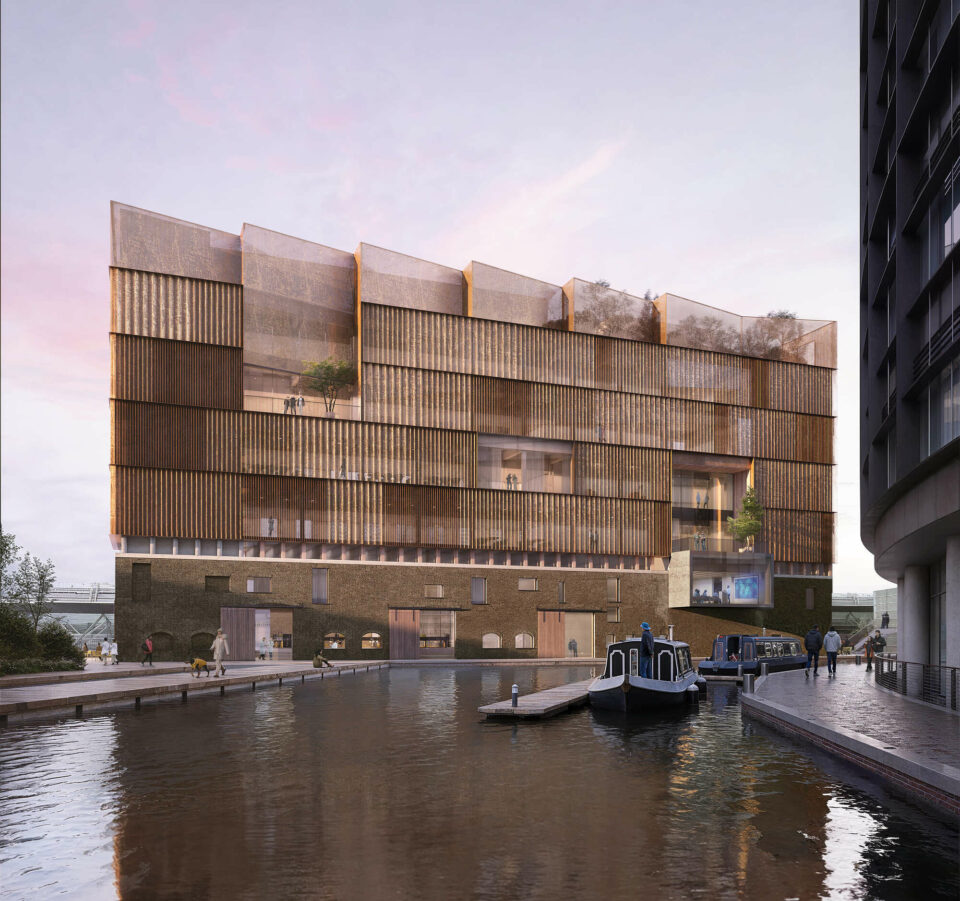Stanton Williams to Create Innovative Fleming Research Centre at St Mary’s Hospital
Stanton Williams has been commissioned to develop the Fleming Centre, a cutting-edge research and public engagement facility set to rise on the St Mary’s Hospital campus in Paddington, London. This initiative, announced by the Royal Institute of British Architects (RIBA), aims to establish an international hub dedicated to tackling antimicrobial resistance (AMR), a pressing global health concern impacting communities globally. The Fleming Centre will serve as a cornerstone of the extensive Fleming Initiative, a collaborative effort between Imperial College Healthcare and Imperial College London.
A Collaborative Environment for Diverse Experts
The newly envisioned Centre is intended as a multifaceted venue where various stakeholders—including researchers, london-but-face-a-new-threat-from-knife-crimes/” title=”Seeking Safety: Americans Flock to London, but Face a New Threat from Knife Crimes”>government officials, healthcare providers, behavioral scientists, industry partners, and members of the community—can work synergistically. With an eye towards leveraging this collective expertise, the facility seeks to combat AMR on a worldwide scale. Additionally, it will form part of an expansive worldwide network designed to promote cooperation and knowledge exchange on this critical medical issue.
Image © Stanton Williams
RIBA Design Competition Leads To Selection
Following an intensive design competition held by RIBA that included a three-day exhibition highlighting concepts from five shortlisted architectural firms—such as AHMM and Grimshaw—Stanton Williams emerged victorious. Feedback was gathered from over 300 visitors along with written insights from 100 attendees during the exhibition process. The selected design stood out for its effective combination of practicality and exceptional aesthetics while also resonating with local community necessities.
Next Steps in Development
The subsequent phase entails fine-tuning the proposed design through public engagement consultations before submitting planning applications alongside Westminster City Council authorities. The Fleming Centre represents part of broader redevelopment initiatives for St Mary’s Hospital that are included under the Government’s New Hospital Programme; it is tentatively set to open in 2028—the same year marking one hundred years since Sir Alexander Fleming’s groundbreaking discovery of penicillin at this location.
Integrating History with Modernity
Stanton Williams’ proposal pays homage to The Bays—a historically significant site comprising industrial warehouses dating back to the 1850s which were adapted for hospital use in 1983—while introducing contemporary features such as the Fleming Discovery Centre that will illuminate progress in scientific exploration. Sustainability remains central within their vision; plans include renewable energy solutions like water-source heat pumps coupled with photovoltaic panels alongside biodiverse landscaping efforts aimed at fostering ecological balance.
Image © Stanton Williams
Promoting Public Engagement
Key features within design encourage public involvement through open spaces occupying ground-floor areas that offer transparent views into laboratories and exhibit zones—demystifying science while enhancing accessibility for guests.
In related developments across architectural realms:
- Architectural teams Snøhetta and HGA are progressing on constructing BRAB (Barbara and Gerson Bakar Research and Academic Building) at UCSF.
- Zaha Hadid Architects has been appointed architect for Uzbekistan’s Alisher Navoi International Scientific Research Center—an ambitious educational complex taking shape.
- Meanwhile, Europe’s inaugural “wild river national park,” Vjosa National Park spanning across 190 km is poised to unveil its visitor information centre crafted by Danish firm CEBRA.
This wide array highlights not only innovative architectural endeavors but also global efforts aimed at addressing pressing contemporary challenges through collaborative frameworks.


